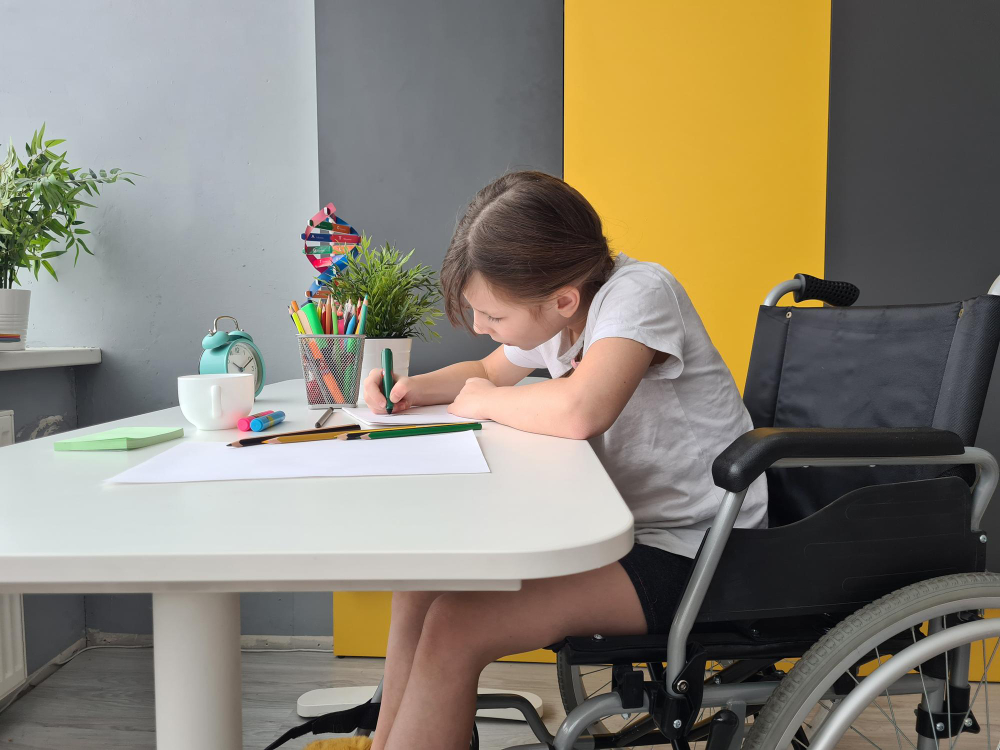Having a child with a disability can be difficult, but it doesn’t have to mean that your child’s life is any less meaningful. With the right support and access to resources, you can help your child live a fulfilling and happy life.

It’s important for parents of children with disabilities to take an active role in their children’s care.
This means providing emotional support, advocating for their rights and needs, understanding their individual challenges, learning about available treatments or therapies that could benefit them, and facilitating connections with other families who understand what they are going through.
In this article, we’ll explore these topics on how to improve the life of your child with a disability.
Providing support
One of the most important things you can do as a parent of a child with a disability is to provide them with love and support. Children with disabilities often face a lot of discrimination and stigma, so it’s important to create a safe and supportive environment at home.
Providing love and support to a child with a disability goes beyond just meeting their basic needs. It’s important to create an environment where they feel valued and included. This can involve actively seeking out opportunities for your child to engage with their community and make connections with other children who share similar experiences. You can also advocate for your child’s rights and ensure that they have access to the resources and support they need to thrive.
Adapting your home
Adapting your home to your child’s needs can also greatly improve their quality of life. If your child has mobility issues, you may need to install ramps or grab bars in your home. If your child has a visual impairment, you may need to install special lighting or tactile cues. Fortunately, there are disability grants provided to disabled adults and children to help cover the cost of these modifications. These grants can be an invaluable resource for families who are struggling to make their homes more accessible.
In addition to physical modifications, such as installing ramps or modifying doorways, you may also need to make changes to your routines and habits. For example, you may need to establish a designated area for your child’s therapy sessions or adjust your meal planning to accommodate any dietary restrictions. These changes can be challenging, but they can also make a significant difference in your child’s daily life.

Developing independence
Another way to improve the life of your child with a disability is to help them develop their independence. This can involve teaching them basic life skills such as dressing, feeding, and grooming themselves. You can also encourage them to explore their interests and pursue hobbies that they enjoy. This will help them build confidence and a sense of autonomy.
Developing independence in a child with a disability is an ongoing process that requires patience and persistence. It’s important to set realistic goals and celebrate your child’s successes, no matter how small they may seem. You can also encourage your child to take on new challenges and explore their interests. This can help them build self-confidence and develop a sense of identity beyond their disability.
Healthcare services
It’s also important to make sure that your child with a disability has access to healthcare services that are tailored to their specific needs. This may include working with specialists such as occupational therapists, physical therapists, or speech therapists. It’s important to establish a strong relationship with your child’s healthcare team and stay informed about the latest treatments and therapies available. Additionally, early diagnosis and evaluation can also be beneficial for your child’s development. If your child is diagnosed on the spectrum, autism therapy San Antonio can be a great consideration for early interventions.
You can also advocate for your child’s needs by communicating openly with their healthcare providers and seeking out additional resources and support when necessary. By taking an active role in your child’s healthcare, you can help ensure that they receive the best possible care and support.
Education and inclusion
Access to education is crucial for the development and well-being of children with disabilities. It’s important to work with your child’s school to ensure that they receive appropriate accommodations and support to succeed academically.
This may involve working with special education teachers or therapists to create individualized education plans (IEPs) that address your child’s specific needs.
In addition to academic support, it’s important to advocate for your child’s inclusion in extracurricular activities and social events. This can help them build relationships with peers and develop a sense of belonging.
Raising a child with a disability can be challenging, but by providing love and support, encouraging independence, adapting your home, advocating for healthcare, and prioritizing education and inclusion, you can greatly improve their quality of life. It’s important to remember that every child is unique and may have different needs and preferences.
By staying open-minded and flexible, you can work with your child to create a supportive and fulfilling environment that allows them to thrive.

